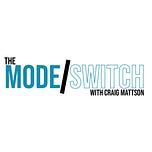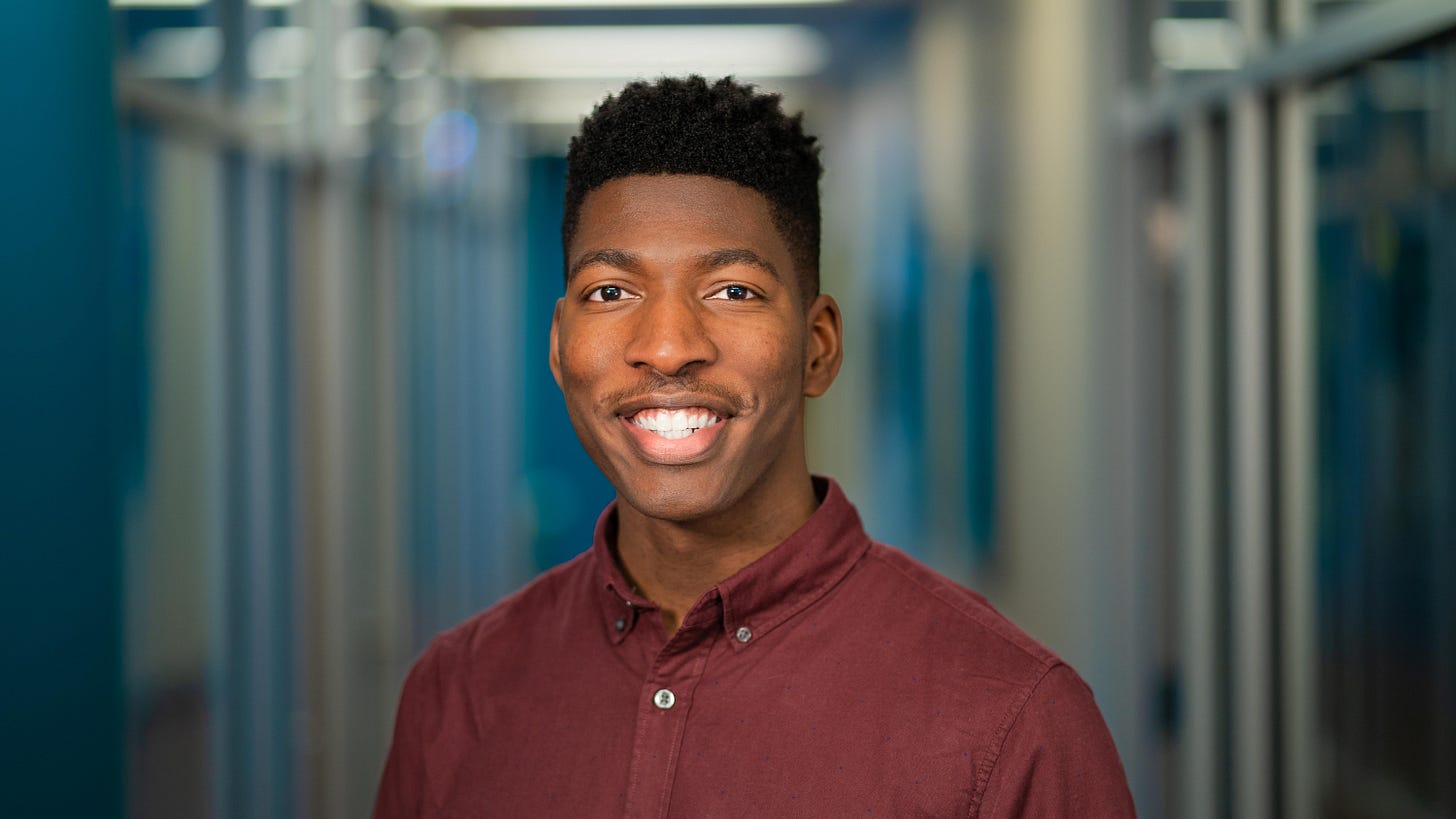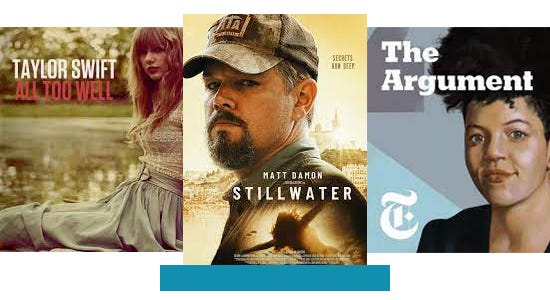Volume 1, Issue 4
Fred Walls knows that disagreement—with clients, with managers, with friends, with himself—is not a crisis. It’s a part of the everyday overwhelm of human communication. But still, the temptation is strong to just keep your head down and opt out of actual engagement with others. What follows is an edited transcript of a conversation in which Fred chats up what he’s learned about generous disagreement in and around the workplace.
Craig: What gives you joy in your work? Where do you feel like, I am really alive here in this work?
Fred: I work at a communications firm, where my job is half public relations, PR, and the other half is video and photography. On a day like today, I spent half of my day working on a media list, basically finding contacts, finding journalists, finding publications, that I can reach out to and say, “Hey, my client is doing this, are you interested in covering it?” And the other half of my day I spent working on a video for one of our clients—a promotional video to put on their website.
So, two very different modes of thinking. And the part I enjoy the most is the video and photography part, when I get to capture the essence of the company—and capture so much that anyone who’s viewing it gets it. You’re conveying feeling to them.
Craig: A visual vibe. Can you say a bit more how you get life out of that?
Fred: I love creating things that you don’t typically get to see with the naked eye. You can read an article about a company, or you can read their front page, or you can go there, and you can see things with the naked eye. But with the video, I’m capturing very specific things and using very specific music and using very specific movements, and I get to show you the company in a way that we want to present it. You’re taking them out of the present moment and showing them something that they wouldn’t see if they were just walking around or just reading an article about something.
Craig: Let’s say you know that a particular aesthetic vocabulary would absolutely nab the character of a company—but what if they don’t know that? Do you ever run into that problem?
Fred: Every single day. Every single project I work on.
Sometimes that just means giving them what they want, or what think they want. A lot of times clients will suggest things that are awful, and I know they’re awful. But they don’t know that. And the only way for them to know it’s awful is for me to give them. And they’re like, “Wow, that’s terrible.” And I’m like, “I know, so let’s do something else.”
Craig: Would you talk more about how disagreement has come to shape your work?
Fred: I’m 27, I’m a guy, I’m Black, I’m a nerd, I’m cool. (I don’t want to say I’m a nerd without saying I’m cool. Because I’m both.) For a long time, I tried to mute all of my unique qualities. I’m young, so I don’t want to seem like I’m too young. I want to fit in with older people. I’m Black, but I don’t want to seem l’m too Black. I want to fit in with corporate culture. I am a guy, but I don’t want to be too much of a guy. Because I work in PR, and there’s a lot of women in PR. Sometimes guys, we’re not very thoughtful. I was really trying to mute everything so that I could be competent and professional.
Craig: Whatever that means.
Fred: Whatever that means, I’m still trying to figure that out. Those are the things that—those differences are the spice of life. And when you start embracing those things, people really enjoy you more. The other day, somebody at my job was talking about, how when they were going to their favorite concert venue in Chicago, they had to line up outside and camp there to get the tickets. And I’m like, “What? Why didn’t you just buy them online?” There was no internet back then, that’s why. My mind was completely blown. I almost shed a tear. But that just showed a huge gap, and everybody laughed about it.
Craig: I have a colleague who says that it’s hard to be a person these days. Let’s talk about communication overwhelm. Where do you run into too-much-ness at work?
Fred: I think there’s the regular, day-to-day overwhelm. Your job is a lot. When I first started working, I would be tired of being at work. I would have these thoughts, “I would rather be somewhere else,” I thought that as I matured that feeling would go away. That feeling doesn’t go away. Even when you have a nice job, some days you’re just tired. Some days you’d rather be playing video games or at the park.
And then I think there’s also the overwhelm of life. Not only do I want to make sure I’m competent in my job, but I want to be perceived as competent in my everyday life. People are asking, “Where are you working at? Are you married yet? Do you have kids yet? Where are you living?” And no one’s like, “How are you doing? How’s your mental health? Are you eating properly? Are you getting exercise?”
And then you just have the overwhelm of being a human in 2021. The way that you’re getting messages from everybody about what to think or how to think. The idea that there’s no real truth, or it feels like there’s no real truth, on the Internet, because the Internet is full of everything.
Now that I think about it, this might be the most overwhelming thing to me in the last year. You can find arguments on the Internet to back up anything you have to say. It’s not like, I say this, you say this, let’s go to the source and figure it out. No one has the same basis of knowledge or information. So, because of that, you can’t have an actual conversation.
Craig: When you run into this problem, what’s your go-to way of coping?
Fred: Before 2020, my way of coping with that was just agreeing and then getting quiet so we didn’t talk about it anymore—because I didn’t like the tension. And I think now things have changed: if I disagree with something, I’m very vocal about it. What I like to do first is to ask probing questions, because a lot of times I’m wrong, and I don’t know that until I have a conversation with somebody.
A lot of times I feel like it’s just having the conversation, saying, “I completely disagree, and here’s why. This is why the things that you said don’t really make sense to me.” I always try to have the conversation, and I don’t always expect things to change in that moment.
This interview has been condensed and edited for clarity. Listen to the full interview at the top of this newsletter.
Who’s Saying Good Stuff?
These moments in pop culture offer three distinct approaches to difference. The Argument podcast represents the conviction that we can transcend our differences in the practice of making claims and sharing reasons. “All Too Well” performs a defiant and hard-won conviction that sometimes difference is irreconcilable. The Tom McCarthy movie offers the same approach, but does so with the grace of a tragic acceptance.
Taylor Swift’s song “All Too Well”
Tom McCarthy’s film Stillwater
Jane Coaston in The Argument podcast
X’s and Zs: An Intergenerational Glossary
I gave Fred a second call for a follow-up interview about identity terms important to him. I actually caught him while driving. He had his phone camera on, but he kept his hands at 10 and 2—and his eyes on the road, mostly. Here’s an edited transcript of our chat.
Craig: What road are you on?
Fred: Oh, I’m on—well, you know, I am a millennial, so we don't ever know what road we’re on. We just follow the GPS. I'm headed to Planet Fitness.
Craig: Cool, all right, let’s say you have a simp at the gym. What’s a simp?
Fred: I don't want to claim to be like the Merriam-Webster of slang terms, but I think that a simp is a simpleton. It’s used to refer to someone who doesn't really understand how people work. I hear it most often when there's a guy who really likes a girl, and he's doing everything for her, trying to win her affection. But it's clear that she doesn't actually like him.
Craig: Is the term gendered?
Fred: Guys can have simps, girls can have simps.
Craig: Equal opportunity. Sheesh, I love these here modern times. Speaking of which: I've been using that word in a sense like, “I can't believe I did that—sheesh!”
Fred: If I see another photographer’s work, and I’m blown away by it, I would say, sheesh! [Here Fred’s voice achieves an upper register.] I usually say it in that falsetto. I've heard rappers use it to talk about how good their life is. They're just like, sheesh.
Craig: As you can imagine, I’ve heard a lot of rappers say the same. So, here’s the last one. The word is sis.
Fred: Sis can either be an endearment, or it can mean you're trying to humble somebody. So, let's like, “Hey, what's up, sis?” You're obviously excited to see her. Or if you're trying to put somebody in their place: “Look here, sis, you know, XYZ.”
Craig: How’s gender work with sis?
Fred: I don't know a lot of people who called guys sis. And honestly, I don't know a lot of guys who use the word sis. Even when I'm talking to girls, who are friends of mine, I'll call them bro.
Craig: Anyone called you sis?
Fred: I could see a girl being like, “Sis, look!” And I would be like, “It's weird that you called me sis, but I get it.”
Craig: Alright, join us next week on The Mode/Switch for a chance to protest Fred’s gender-exclusivity on the word sis.
Fred: I guess we'll find out.
Craig: Thanks, Fred.
Fred: Wow, dude, I… well, I'm honored.
Craig: Dude?
Did you enjoy hearing the full conversation between Fred and me? Let me know what you think and if you’d like more full conversations with other early-career professionals. - Craig
















Share this post